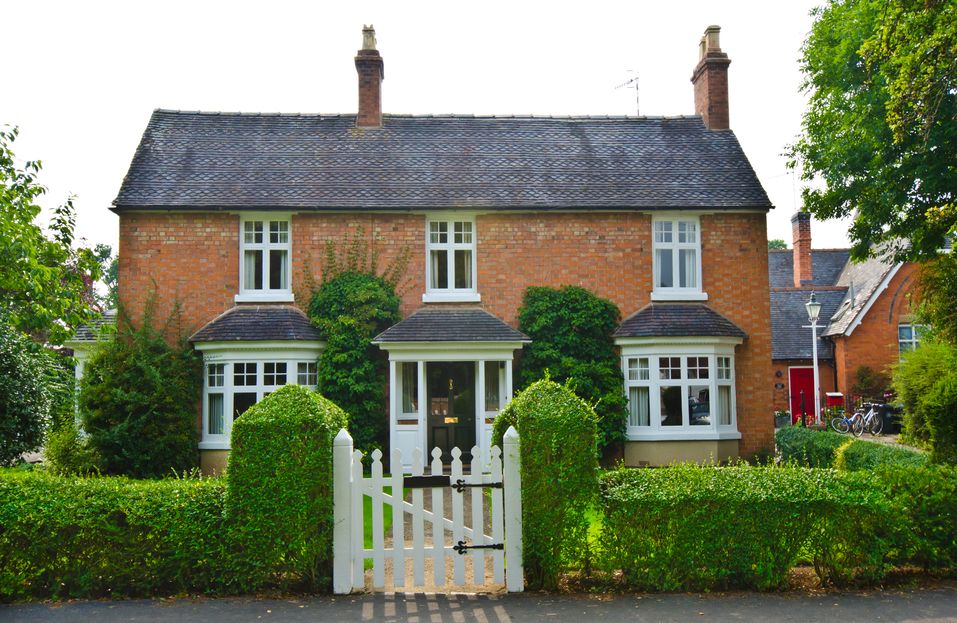
The Help to Buy scheme was first introduced in 2013 to help first-time buyers get onto the property ladder. But what happens when you want to sell your home with a Help to Buy equity loan? Many people are unsure of what’s involved, who they need to contact, and the additional costs associated with selling a home with a Help to Buy equity loan.
In short, the scheme meant that first-time buyers would only need a 5% deposit as they could borrow up to 20% of the property’s value interest-free for the first five years from the government, and the remaining 75% would be taken out as a mortgage. However, the Help to Buy scheme has now ended, with no government plans to extend the scheme. You can find out more about Help to Buy alternatives here.
You must repay your Help to Buy equity loan after 25 years or at the same time that you sell your home.
When you buy a house under the Help to Buy scheme, a second charge is placed on the property title at the Land Registry. Because of this, you can’t sell your home until the HCA (Homes and Communities Agency) is repaid their loan percentage. Unless you have already repaid the loan in full through staircasing, the agency’s equity loan will be repaid at the same time that you sell.
If you have a 5% deposit and a 75% mortgage, you will have to pay back 20% of the property’s value at the time you sell it. If you have made staircasing payments, you will have a smaller percentage to pay back to the HCA.
For all administrative duties, enquiries and decisions relating to the Help to Buy scheme, you will have to get in contact with Target, the third-party firm used by the HCA. You can do this by emailing Target.HCA@targetgroup.com or calling 0345 848 0235.
If you decide to sell the home that you bought with a Help to Buy equity loan, you can still sell it on the open market, just as you would a house with a regular mortgage. Once you have received an offer for the property, you will need to get it valued by a chartered surveyor. You can do this by contacting the National Post Sales Agency. You will also have to inform Target that you have instructed a surveyor and the amount of the offer you have received. Target will contact you once it has received the valuation report to let you know the next steps you should take.
When buying a home under the Help to Buy scheme, most mortgages are exclusively available for Help to Buy properties. So, your mortgage will likely change when you sell your Help to Buy property and buy a non-Help to Buy home. Some Help to Buy mortgage deals are portable; however, most are not, and therefore you would need to take a new deal rather than have your old deal transported across. Although, some lenders will refund early repayment charges (ERC) if you take out another mortgage deal with them.
Suppose you haven’t already paid off the equity loan when you sell your house. In that case, the amount you have to pay back, deducted at the time of the sale (minus any redemption payments), is calculated as a percentage of whichever sum is highest, either the agreed sale price or the current market value of the property.
When obtaining a property valuation, ensure your surveyor is an RICS-qualified member. If they are not, the valuation may be rejected by your Help to Buy agent, and you will have to pay again for a valid valuation. The valuation is valid for three months. If a loan has not been redeemed within this timeframe, you will have to pay for another valuation or extension.
Your Help to Buy agent will establish the total repayment amount. There will also be an administration fee of £200 on top of the total amount.
The Help to Buy scheme applies exclusively to new build homes, and these homes tend to diminish in value quite quickly. This is because they are only seen as ‘new’ for a short period of time.
But, with a Help to Buy equity loan, you are only committed to repaying the percentage of the loan that you receive at market value when you sell your house. Thus, you won’t be held liable for any shortfall in the loan if the market valuation is approved, you have fulfilled your lender’s terms, and you are not in arrears over interest or management fees.
However, it is important to note that your Help to Buy agent may ask you to provide evidence to show that you have not knowingly under-sold the property. Once you have permission to sell your home at a lower market value, your outstanding mortgage balance will be deducted from the market value or sales price (whichever is highest) to calculate the final repayment figure.
For more information about selling your home with a Help to Buy equity loan and appointing a conveyancer, don’t hesitate to get in touch or get a free quote.

© 2024 Muve UK. All Rights Reserved.